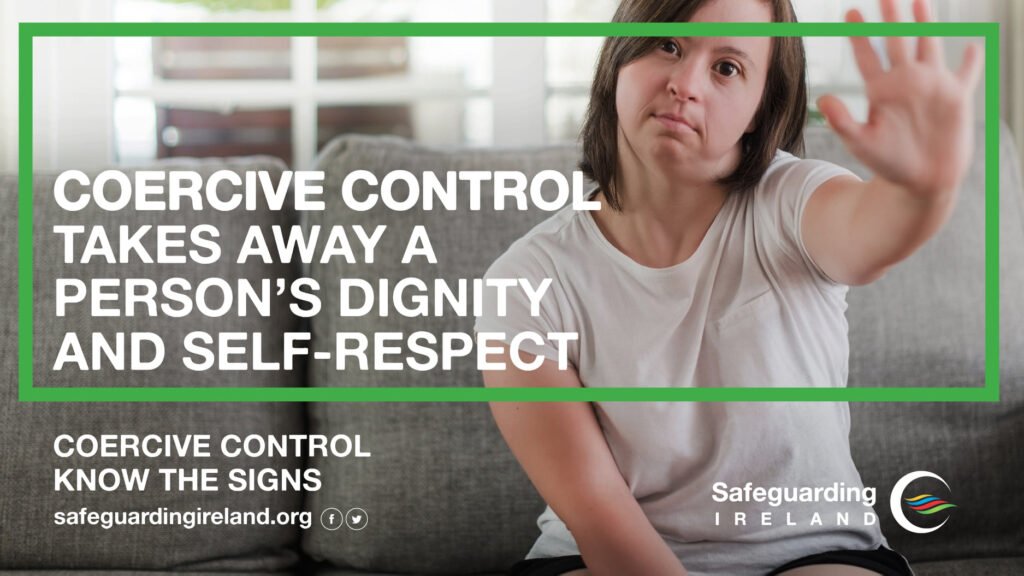Thousands of abuse concerns and safeguarding plans submitted by disability and older persons services to a HSE safeguarding and protection team are awaiting review, due to chronic staffing deficits, placing service users at risk of harm. Catherine Reilly reports
Some 1,812 alleged abuse cases submitted by disability and older persons services for review by a HSE safeguarding and protection team (SPT) had not been examined as of late 2020, due to persistent staffing deficits and the volume of referrals. Some of the unreviewed abuse concerns in Community Healthcare Organisation (CHO) 7 dated to June 2019.
The team also had received 1,626 safeguarding plans, dating to 2016, which it had been unable to examine. There was no waiting list for referrals from the community. The situation, repeatedly raised by the SPT internally, is putting service users at risk of harm, according to records released to the Medical Independent (MI) under Freedom of Information (FoI) law.
Inadequate response times to abuse and neglect “could result in abuses occurring, which could otherwise be prevented”, warned a CHO7 SPT/HSE National Safeguarding Office (NSO) business case in July 2019. It advised of “a significant risk that case or cases may not be monitored or highlighted from the waiting list and an adult experiences abuse, which may be avoidable with oversight and advice”.
As of late 2020, however, the issue was not recorded on the CHO7 Chief Officer’s risk register released under FoI.
SPTs in the nine CHOs support services to assess and manage abuse concerns. HSE and HSE-funded disability and older persons’ services are required to submit preliminary screenings of abuse concerns to SPTs for review. Services must ensure the immediate safety of service users and provide appropriate supports. However, the ability of services to effectively prevent, identify and manage abuse concerns is variable.
The outcome of any assessment/inquiry following preliminary screening must be reviewed with the SPT and a plan approved to address necessary actions, according to the HSE adult safeguarding policy. The SPT develops or ensures development of interventions and safeguarding plans; and reviews the effectiveness of such plans. Complex cases may be directly managed by the SPT.
Additionally, SPTs receive and directly manage referrals from the community, and provide advice and training.
According to a draft summary of 2020 activity, prepared by the CHO7 SPT for management, there is “a significant risk of harm to service users due to [the SPT’s] inability to respond in a timely manner to concerns of abuse coupled with inability to identify patterns of abuse due to significant backlog…”.
This resulted in “lack of governance and oversight of HSE and HSE-funded older persons and disability services”, outlined the SPT CHO7 2020-2021 paper.
CHO7 (Dublin South, Kildare, and West Wicklow Community Healthcare) has the largest population of older persons and disability services nationally. The level of safeguarding training in the area has also contributed to greater referral rates, the HSE has previously stated.
But while the CHO7 SPT receives 20 per cent of national referrals, it is funded and staffed equivalent to the CHO with one-fifth of its referrals, according to the SPT CHO7 2020-2021 paper.
The need for adequate staffing levels, and associated risks, have consistently been raised by the SPT’s successive Principal Social Workers with HSE senior management and the HSE NSO.
A risk assessment within CHO7 Social Care, dated 3 April 2019, referred to 1,305 preliminary screenings that had not been reviewed, dating back to October 2018. Some 1,116 safeguarding plans awaited review, dating back to June 2016. Out of seven social work staff, there were three vacancies.
The document referenced “inadequate allocation to safeguarding team per population and work volume” and “delays in recruitment process”. Control measures included “reduced amount of training provided” and “not processing safeguarding plans since 2016”. The primary impact category was “harm to the client” and the risk rating was “high”.
Background
The SPTs and NSO were established under the auspices of the HSE Safeguarding Vulnerable Persons at Risk of Abuse National Policy and Procedures (2014). The policy advocates “zero-tolerance” towards abuse and neglect, and is operational in the Social Care Division.
The NSO has a remit to “provide leadership, oversight and co-ordination” of policy and practice in adult safeguarding. The SPTs’ operational line, however, is within their CHOs and not with the NSO.
Among the NSO’s core activities is preparing annual reports with statistics from the SPTs. A national IT system is still awaited and the SPTs are reliant on paper and spreadsheet systems in this regard. The annual data is widely reported in the media.
The 2018 NSO annual report included references to backlogs and resourcing, although the implications were not made clear and this detail was not flagged in the press release.
According to the report, the 2018 data included 438 concerns in CHO7 “received by the STP” but “not logged in detail on the safeguarding system” due to staff shortages and the impact of a significant increase in institutional abuse notifications.
Later in the report (p40), it stated “the existing level of service” in the SPTs had been “seriously tested with instances of backlogs and waiting lists because of increasing levels of demand and staffing vacancies”. SPTs were “experiencing significant capacity constraints” responding to “increasing demands in a timely manner”.
“CHO7 and CHO8, in particular, have been impacted by significant recruitment and retention issues and as a consequence, a backlog of work has resulted. Recruitment and retention constraints were not exclusive to these SPTs, similar challenges were faced across the entire social care sector.
“Increased institutional abuse notifications have impacted on the backlog in CHO7 in addition to staff shortages and has had implications for the safeguarding team’s overall capacity.”
A more specific sentence on CHO7 was included in a draft extract. It described the backlog as having “seriously impacted” the CHO7 SPT’s “capacity to deliver a safe service and progress work in a timely manner”. The 2019 annual report, which reported a larger backlog, included the line.
In advance of publication, a draft copy or extracts of the 2018 report were sent to senior HSE managers by NSO General Manager Mr Tim Hanly for review. These managers included CHO7 Chief Officer Ms Ann O’Shea; CHO7 Head of Social Care Ms Carol Cuffe; and HSE Assistant National Director, Older Persons, Ms Sandra Tuohy, according to FoI records, which did not provide further insight into the process of changes to the draft.

Expert knowledge
Safeguarding and protection social workers have expert knowledge in the “patterns and complex dynamics” of abusive behaviours, including domestic violence, institutional abuse, coercive control, perpetrator grooming of professionals, and barriers to safety, according to the Irish Association of Social Workers (IASW). They are experts in co-working with An Garda Síochána, financial institutions, and “within the complexities of the Irish legal system”.
But the HSE SPTs operate in rough seas. There are varying resourcing deficits in the nine SPTs and inherent challenges in investigating HSE services while being a part of the same organisation, with line management in social care. They also work in the absence of specific adult safeguarding legislation which has numerous implications.
A recent IASW position paper on adult safeguarding described SPTs as “inconsistently resourced” with many holding “significant waiting lists”.
The paper noted the absence of a “collective voice” in terms of service and policy development, due largely to the provision of operational line management at individual CHO level rather than centrally by the NSO. It further referred to “inconsistent referral processes for adult safeguarding”. CHO areas had different initial assessments as well as differing thresholds for response and interventions.
The SPTs also had no legal authority to enter private homes/private nursing homes within the current legislative framework (a matter raised in August 2020 by the Covid-19 Nursing Homes Expert Panel).
The IASW said it was aware of the challenges social workers experienced within the culture of their organisation. “Social workers have expressed concerns about the lack of understanding and minimisation of cases of abuse at the highest level of HSE and HSE-funded management structures.”
It also noted that the HSE’s adult safeguarding policy did not extend to adults using other services, such as mental health, acute settings, primary care, private nursing homes, etc. In 2019 the HSE revised the policy to cover all divisions, but this version remains in draft as of early 2021.
According to the IASW, the HSE has proposed that safeguarding social work teams “will have a ‘quality assurance’ oversight function only, and will no longer work directly with adults who have experienced neglect or abuse”.
The IASW urged the Government to fully enact the Adult Safeguarding Bill 2017 in conjunction with the recommendations of the Speaking Up About Adult Harm report in relation to suggested amendments to the Bill; and fully commence the Assisted Decision-Making (Capacity) Act 2015. The Government should legislate for, and adequately resource, an independent statutory social work authority for all adults at risk of abuse or neglect, according to the IASW paper.
While the pressing requirement for adult safeguarding legislation is widely acknowledged, movement has been slow. Organisations including HIQA and Safeguarding Ireland (a HSE-funded awareness-raising body) have emphasised the need for a whole-of-society legislative framework.
The Department of Health is developing an adult safeguarding policy for the health sector, which will be “underpinned with appropriate legislation”. The Department is “committed to seeking Government approval to the policy in 2021”, according to a spokesperson.
Separately, the Law Reform Commission is preparing recommendations for a “human-rights based, cross-sectoral regulatory framework” for adult safeguarding, with its paper due in early 2022. According to HIQA, disability and older persons’ residential centres are required to have safeguarding measures in place (although the regulatory framework in social care needs significant reform, HIQA has stated). It says inspectors have found “increasing levels of compliance” regarding safeguarding. HIQA and the Mental Health Commission have published joint national standards for adult safeguarding.
Asked about the situation in CHO7, and its response, HIQA said its experience was there were “differing arrangements across HSE CHO areas and across different service provider types”.
Ms Patricia Rickard-Clarke, Chair of Safeguarding Ireland, stressed the need for comprehensive adult safeguarding legislation and full commencement of the assisted decision-making law (current timeline for full commencement is June 2022). She told MI another significant problem related to inhibited information-sharing between relevant organisations due to concerns around data protection law.
Ms Rickard-Clarke said investigation of abuse concerns in HSE and HSE-funded services must be independent of the Executive. She said the fact that Safeguarding Ireland is HSE-funded had not been problematic in highlighting relevant concerns. On the matter of the CHO7 backlog, Ms Rickard-Clarke said she “would not know the detail” of the situation.
“We are not at operational level at all, although keenly interested to know what is going on.”
Insight
Documentation from 2018 to 2020, released through FoI, provides some insight into the myriad challenges faced by the CHO7 SPT. Recruitment ‘pauses’, slow recruitment procedures, and delayed or refused sanction for posts and overtime, have all depleted the team’s ability to screen abuse concerns in a timely fashion. In tandem there has been a sizable growth in referrals.
A meeting of the CHO7 safeguarding committee in November 2018 heard of a 26 per cent increase in referrals since 2017, with CHO7 receiving the largest number of reports in the country. The next meeting, in March 2019, heard the safeguarding team had four social work staff whereas the full (funded) complement was seven whole-time equivalents.
“The situation is a factor in the increasing backlog. While CHO7 has processed the highest number of concerns, it also has the highest backlog,” outlined meeting minutes.
The SPT’s then Principal Social Worker, Ms Siobhán Nunn, warned that increased notifications and under-staffing “results in analysis not being performed and consequently, there is limited learning or preventative action”.
CHO7 SPT had processed the highest number of concerns in 2018 (approx. 1,900), including 1,700 concerns from services. There were reasonable grounds for concern in 90 per cent of cases, according to minutes. A number of trends were outlined at this meeting, including cybercrime affecting young people with disabilities. School leavers with an intellectual disability who had limited support during school years were also finding themselves in “abusive situations”.
Inadequate response times to respond to abuse and neglect could result in abuses occurring which could otherwise be prevented
A meeting of the committee in June 2019 discussed the complex nature of the SPT’s work, which included “using old legislation to try and protect people such as wardship legislation”.
At this meeting, a further discussion took place on foot of an “alarming” case study. The minutes referred to ‘Do Not Attempt Resuscitation’ orders made without patient/family consent; inappropriate prescription of medication; and “relatives using medication inappropriately resulting in over-medication and poisoning”.
Moratorium
On 27 June 2019, in an email with the subject line “moratorium”, Ms Nunn informed the NSO’s Mr Hanly that two social work posts were stalled. The SPT had also been told “we cannot apply for cover” for a social work team leader on maternity leave since March.
“The moratorium is an issue both for capacity to deliver service and backlog,” Mr Hanly acknowledged.
In an email the following month, Mr Hanly discussed safeguarding data and the “significant backlog” in CHO7 with Head of Social Care Ms Cuffe and Chief Officer Ms O’Shea.
“There is currently a total backlog of 1,509 preliminary screenings to be processed and a backlog of 423 safeguarding plans to be processed and entered on the system from 2018,” stated Mr Hanly. The NSO had examined vacancy levels across the SPTs and placed “the impacts of the pauses in recruitment” on its risk register, he advised.
While “mindful” of cost pressures on the HSE, the level of vacancy in CHO7’s SPT was “an ongoing risk” in terms of timely response to abuse concerns. Mr Hanly requested a meeting involving the NSO, CHO7 personnel and management, and Ms Tuohy, the HSE Assistant National Director, Services for Older People. The meeting would focus on resolving the backlog, how the subject would be “addressed” in the 2018 annual report, and the impact of the “recruitment pause”.
In advance of the meeting, Ms Nunn put forward a paper with background on the SPT’s work and outlined a staffing structure that had been proposed since 2016. Following the meeting, Mr Hanly and Ms Nunn developed a business case for additional resources to address the backlog and longer-term safeguarding obligations.
The NSO/CHO7 SPT business case (dated 26 July 2019), presented to Ms Tuohy, outlined “historical inadequate staffing provisions”. The team had managed to clear the 2017 backlog in 2018, but a 2018 backlog remained and one from 2019 was building. Inadequate capacity led to “unacceptable delays” in oversight of reported abuse concerns and “seriously impaired interagency collaboration”. It also had a “serious impact on capacity to undertake necessary educational and prevention roles”.
“Inadequate response times to respond to abuse and neglect could result in abuses occurring, which could otherwise be prevented,” stated the business case. It referred to “a significant risk that case or cases may not be monitored or highlighted from the waiting list and an adult experiences abuse, which may be avoidable with oversight and advice”. The plan sought four additional social work positions.
In September 2019, in relation to draft passages for the 2018 NSO annual report, Ms Nunn expressed concern that it “only tells half the story”. She highlighted that CHO7 SPT had processed more preliminary assessments than any other area in 2018 despite its vacancies. In December 2019, the CHO7 safeguarding committee meeting heard that a “business case for four additional staff for the team was refused”.
Pandemic
During 2020, Ms Celine O’Connor was appointed as Principal Social Worker in the CHO7 SPT. At this juncture, the Covid-19 pandemic presented further challenges to safeguarding. In an update for Head of Social Care Ms Cuffe on 6 May 2020, Ms O’Connor said the total backlog was at just under 4,000 preliminary screenings and safeguarding plans combined.
There had been a significant fall-off in screenings received during the pandemic, but Ms O’Connor expected these would return to normal levels in due course. The curtailment of community supports and respite services was “impacting on families where we have concerns already about abuse”. She referred to ongoing staff vacancies and put forward proposals to sustain and bolster the team.
The following month, in an email to CHO7 management and the NSO, Ms O’Connor noted HIQA was asking services in the area to send formal safeguarding plans to the SPT where interim plans were still in place.
Services were sending the plans with their own codes and passwords and there were difficulties identifying the relevant preliminary screening.
“Currently there are 2,609 preliminary screenings dating from Feb 2019 waiting to be reviewed. Also 1,571 safeguarding plans that have not been reviewed since April 2016, these should be reviewed every six months,” Ms O’Connor informed Mr Hanly at the NSO.
The team was advising agencies that “if there are particular issues to highlight them and we are prioritising these cases. In some of the cases we would not be requesting formal safeguarding plans as the incident has been sufficiently dealt with and we can close them at preliminary screening stage.”
On 29 July 2020, Ms O’Connor wrote to Ms Cuffe and CHO7 Head of HR Mr David Tully about the need for four agency social workers to backfill two experienced social workers being assigned to a review (these agency staff were granted). She also suggested some form of transfer of social care-funded social work positions, currently in primary care, to the SPT.
Some social workers, managed by primary care, were providing input to nursing homes and in most cases had not availed of safeguarding training (MI understands this relates to an industrial relations matter). Ms O’Connor said having social workers in HSE nursing homes who did not provide a “safeguarding part” to their role needed to be “urgently reviewed in light of the current situation”.
She wished to allocate another experienced safeguarding social worker, “as a matter of urgency,” to provide safeguarding training to all HSE nursing homes. She cited two facilities where over 60 staff were not up-to-date with training or had not received any training. While nursing homes often had their own trainers, Ms O’Connor considered “this experience is indicating that a more robust training particularly in the area of sexual abuse is required”.
On 28 August 2020, in another email to CHO7 senior management, Ms O’Connor highlighted the need for assistance for the team and the serious consequences for individuals on account of the enduring backlog of abuse concerns.
“I am acutely aware, as I know you both are, that the 3,968 concerns [including safeguarding plans] that we have yet to respond to are not just data or forms, but are real individuals who deserve to have their concerns of abuse dealt with in a timely manner,” she informed Chief Officer Ms O’Shea and Mr Tully.
The principal social worker also expressed concern that some services “are now not reporting into us as they know we will not be able to respond to them in a timely manner”. This email noted the NSO’s anxiety “about impact on clients, reputational damage and adverse media attention to [the] HSE”. The NSO was “escalating this up to their line management”, according to the email.
Since taking up the post in April 2020, Ms O’Connor had submitted requests for additional posts and suggested redeploying social workers to the SPT during the pandemic. She was “grateful” for support to date, but emphasised “we do urgently require assistance”. She said “some of this will have to come nationally”, but locally the team required administrative support and office space.
Responding on the same day, Ms O’Shea said she wished to support the SPT, but was under immediate time constraints associated with Covid-19. She endeavoured to consider the issues in detail and revert.
Meanwhile, the presentation of the latest NSO annual report arose in late 2020.
On 10 November 2020, Ms O’Connor informed Ms Loraine Kennedy, CHO7 Head of Service, Older Persons, that the published NSO annual report for 2019 contained changes to the version Mr Hanly had circulated during the previous week. She said that “no longer had CHO7 1,000 unlogged cases under each graph” and instead it referenced “data not categorised”.
“Both references make it sound like it’s just an admin oversight not the lack of social work resources to review the cases,” stated Ms O’Connor.
2021
In August 2020, the SPT achieved full (funded) staffing of social workers for the first time in three years. As of the end of 2020, it was funded for eight permanent social workers and one administrator. Requests for several additional staff were still awaiting decision. The combined backlog of abuse concerns and safeguarding plans stood at over 3,400. A significant decrease in new community referrals and preliminary screenings during 2020 allowed for some progress on the large backlog of abuse concerns.
Since September 2020, the team was managing to respond to all preliminary screenings coming in at that time. However, community referrals had become more complex and “going into 2021 we will be continuing to manage the backlog from 2019 and 2020”, outlined the SPT CHO7 2020-2021 internal paper.
It was further expected that rates of preliminary screenings and community referrals would return to normal levels (about 2,500 per year). The rate could also increase as “some abuse may only emerge as lockdown eases, services re-open and people begin to move around as normal”. There would be demand for input from the team to support the expansion of the adult safeguarding policy to the rest of the HSE services.
The paper noted it was planned that safeguarding teams move to the Head of Quality Safety and Service Improvement as part of the process of implementing the revised HSE policy. It cited an expected €8 million grant for overall implementation of the policy in the second quarter of 2021.
It was “hoped” that the allocation for CHO7 would reflect the level of workload in the area.
Without an urgent increase in staffing the team would not be able to respond to requests for assistance with policy implementation or training. A scoping exercise on implications of the policy would need to be conducted and staffing requirements reviewed.
HSE response
Responding to issues raised in this article, a HSE spokesperson said it is “committed to protecting adults at risk of abuse who are in receipt of the health and social care services we provide and fund”. The HSE is “also committed to working with other agencies on the wider societal requirement to safeguard adults across our communities”.
“The original HSE safeguarding policy and safeguarding protection teams date back to the period post Aras Attracta. Since then, the safeguarding operations in Community Healthcare Organisations have been monitored and we have learned that improvements are required. These include an adjustment of resource to areas with higher populations and rates of safeguarding referral per capita, eg, Dublin and Kildare, and more consistency across the services we provide and fund.”
During 2021, the HSE will begin the “initial phase of transition” to the revised safeguarding policy, “having assured, as we are required to, its alignment” with the Department’s policy.
“Over the coming years we will seek to develop safeguarding operations, continuing to invest year-on-year in staff and systems.”
In the interim, the HSE is “taking measures” including additional staff resources in areas with high volume referrals.













Leave a Reply
You must be logged in to post a comment.